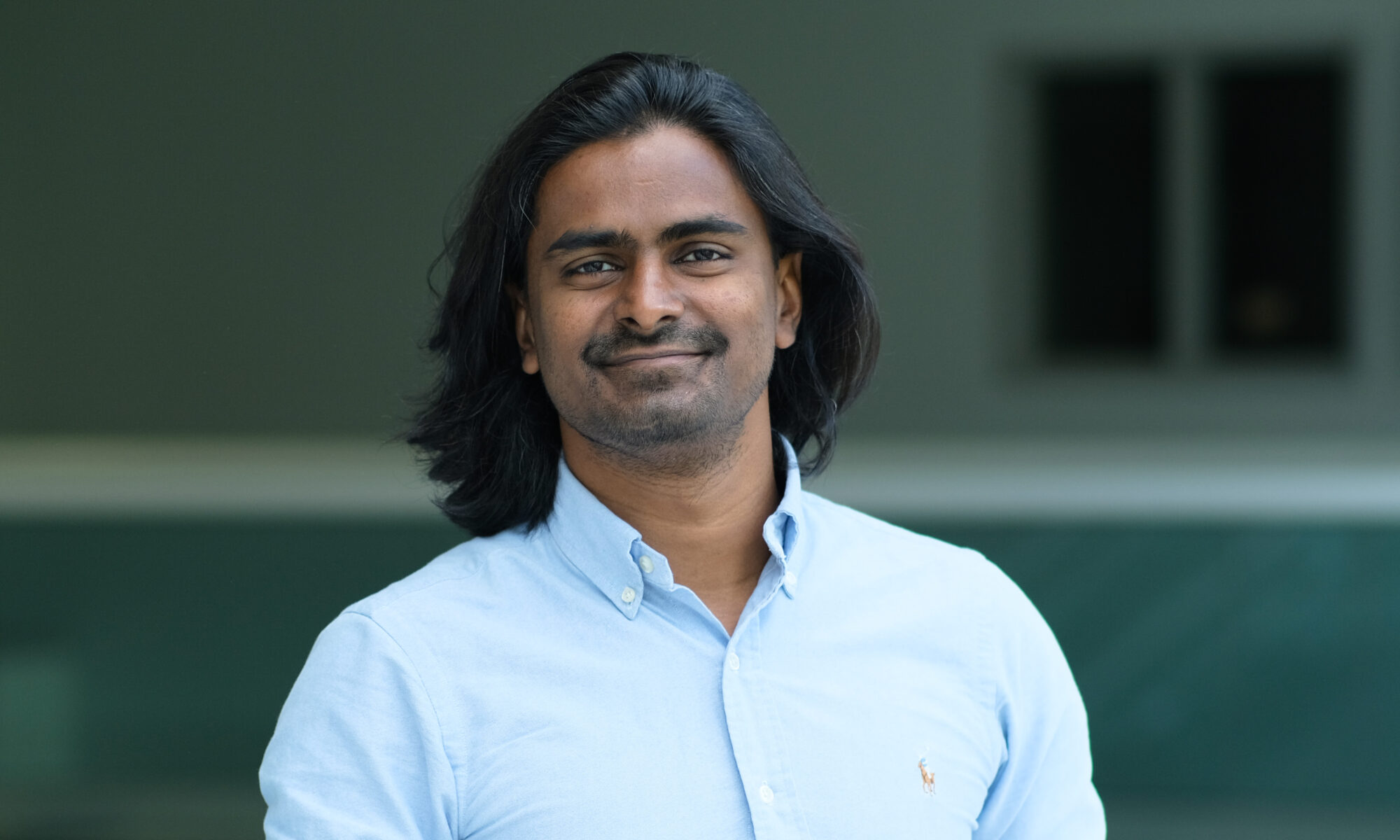Sinha’s lab will use cutting-edge machine learning to discover new drugs to stop cancer before it starts.
Sanju Sinha, PhD, has joined Sanford Burnham Prebys as an assistant professor in the Cancer Molecular Therapeutics Program to continue his research on cancer development and drug discovery. He comes to Sanford Burnham Prebys from the Cancer Data Science Lab at the National Cancer Institute (NCI), where he trained to leverage the power of artificial intelligence to discover new drugs to prevent cancer.
“Sanju’s work represents the future of biomedical research, and we’re thrilled to have him join Sanford Burnham Prebys,” says President and CEO David A. Brenner, MD “Sanju’s innovative use of artificial intelligence is revolutionizing the drug discovery process. The tools he’s creating will enable us to develop drugs with greater precision, which is crucial for creating new, preventive cancer medications.”
For decades, scientists have hypothesized that cancer is a consequence of mutations accumulating in healthy cells. However, they’re now realizing that cells need more than mutations to become cancerous—they must be triggered into becoming cancerous by changes in their environment. One of the goals of Sinha’s research is to identify these triggers and develop interventions against them.
“A key reason I chose to come to Sanford Burnham Prebys is the Institute’s strong track record of research on the biology of aging,” says Sinha. “Sanford Burnham Prebys also does world-class drug discovery research, and I want to work in the intersection of these two areas to develop therapeutic interventions that can stop cancer before it begins.”
To accomplish this goal, Sinha and his team will develop computational tools that can analyze data from thousands of people from all over the world to find out what needs to happen to healthy cells to make them become cancerous.
“The scale at which we can do science has expanded immensely in the past few decades, and it is only continuing to grow,” says Sinha. “These novel computational tools help make sense of data on a massive scale in order to draw the most meaningful and biologically impactful conclusions from it.”
Sinha will also collaborate closely with researchers at the Conrad Prebys Center for Chemical Genomics to discover new drugs that can prevent cancer. These preventive measures could be particularly beneficial to the millions of people living in places with unavoidable carcinogen exposure, such as in developing countries.
“Over the last several decades, the impact of environmental carcinogens such as asbestos, arsenic and air pollution has declined in developed countries, but many people all over the world are still surrounded by these dangers,” says Sinha. “If successful, my research will result in interventions that could help reduce the incidence of cancer on a global scale.”
Sinha completed his PhD in computational biology at the University of Maryland and received his bachelor’s in bioengineering and computer science from the Indian Institute of Technology. In 2021, he was awarded the NCI’s Outstanding PhD award, and he was also recognized as an “Emerging Leader of Computational Oncology” by the Memorial Sloan Kettering Cancer Center.
